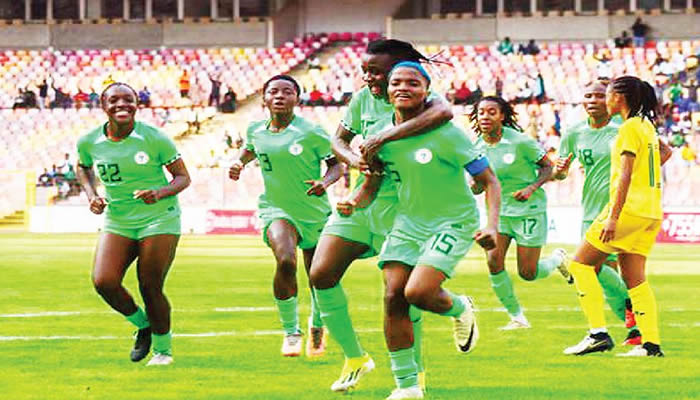The 13th Women’s Africa Cup of Nations (WAFCON), commencing in Morocco, witnesses the convergence of Africa’s footballing elite, each nation vying to challenge Nigeria’s longstanding dominance. The Super Falcons, nine-time champions, arrive as the tournament favorites, their legacy casting a formidable shadow over their competitors. Their consistent triumphs since the inaugural edition in 1998 have set the benchmark for African women’s football, creating a dynasty that other nations aspire to dismantle. This tournament marks a crucial moment for Nigeria, seeking their tenth title, and the rest of the continent, eager to establish a new order.
Despite Nigeria’s imposing presence, a groundswell of ambition permeates the tournament. Morocco, fueled by their 2022 runner-up finish and the fervent support of their home crowd, stands as a leading contender. South Africa, the defending champions, return with a quiet confidence, aiming to prove their 2022 victory was no fluke. Zambia, bolstered by the continent’s most prolific striker, Barbra Banda, seeks to improve on their bronze medal from the previous tournament. The increased prize money, with a record $1 million for the winners, further intensifies the competition, adding a significant financial incentive to the already burning desire for continental glory.
Nigeria’s head coach, Justine Madugu, has carefully curated a squad blending seasoned veterans with promising young talent, aiming for “Mission X” – their tenth WAFCON title. Goalkeeper Chiamaka Nnadozie, a two-time African best shot-stopper, anchors a formidable defense featuring the experience of Osinachi Ohale and the youthful dynamism of Ashleigh Plumptre and Michelle Alozie. This blend of experience and fresh talent creates a robust defensive line, capable of thwarting even the most potent attacks. The midfield, orchestrated by players like Deborah Abiodun, Jennifer Echegini, and Toni Payne, provides the platform for attacking stars Asisat Oshoala and Francisca Ordega to flourish.
Oshoala, a six-time African Women’s Footballer of the Year, brings a wealth of European experience, while Ordega, whose inclusion was initially debated, justified her selection with a compelling performance against Portugal. This attacking prowess, combined with a solid midfield and defense, makes Nigeria a formidable force. Their opening match against Tunisia presents an opportunity to assert their dominance and set the tone for the tournament. Tunisia, ranked 89th globally and making only their third WAFCON appearance, represents a challenge Nigeria is expected to overcome convincingly if they intend to silence their burgeoning rivals.
Beyond the traditional powerhouses, several other nations present intriguing storylines. Morocco, under the tutelage of Spanish World Cup-winning coach Jorge Vilda, aims to capitalize on home advantage and the dynamism of Sanaa Mssoudy. Their 2022 final appearance was a testament to their strategic development and investment in women’s football infrastructure. Their opening match against Zambia will test their mettle and set the stage for their campaign. Zambia’s transformation from underdogs to bronze medalists has been remarkable, spearheaded by Banda’s goal-scoring prowess. Her return, after missing the 2022 finals, adds another layer of intrigue to the tournament.
South Africa’s title defense faces a significant hurdle with the absence of their 2022 Golden Boot winner, Thembi Kgatlana. The responsibility now falls on seasoned players like Jermaine Seoposenwe, who has announced her retirement from international football after this tournament. The tournament also welcomes back Mali, absent since 2018, led by striker Aissata Traore, and features the lowest-ranked team, Tanzania, spearheaded by the ambitious 20-year-old Clara Luvanga. These diverse narratives add to the rich tapestry of the tournament, showcasing the growth and evolving landscape of women’s football in Africa.
The 2023 WAFCON promises a compelling spectacle of football, where established dominance clashes with emerging ambition. The question remains: can Nigeria extend their reign, or will a new champion emerge from the pack of challengers? This tournament is not merely a competition for silverware; it’s a battle to shape the future of women’s football in Africa. As the tournament unfolds, it will reveal whether Nigeria’s enduring legacy will continue or if a new chapter is about to be written in the annals of African women’s football. The stage is set for a month of thrilling matches, showcasing the continent’s finest talent and determining the direction of the sport’s future.


